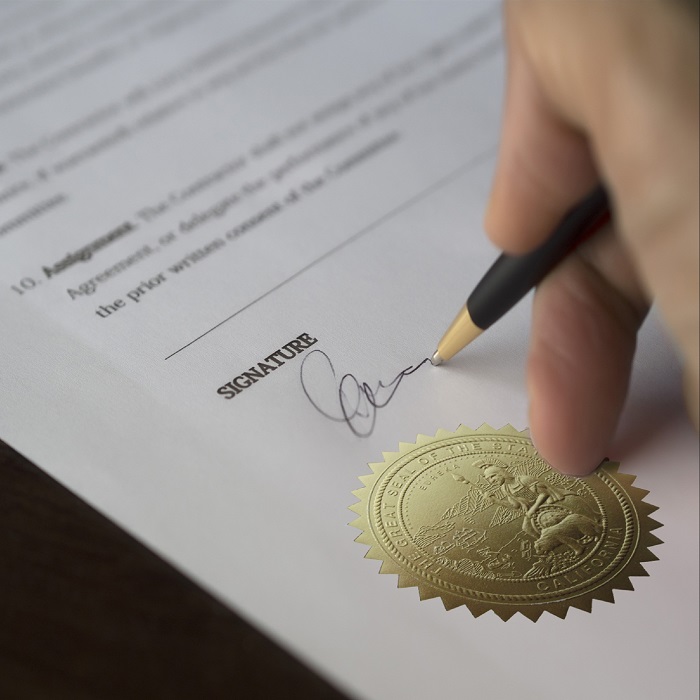
What is an Apostille and why do you need one: features of the procedure
If you need to use a U.S. document in another country — for school, marriage, immigration, business, or legal matters — you may be told to “get an apostille.” But what exactly is an apostille, and how do you get one in the United States?
In this guide, we’ll explain everything you need to know about the apostille process, including how it works, why it’s required, and how to make sure your documents are accepted abroad.
What Is an Apostille?
An apostille is a special certificate that makes a U.S. document valid for use in another country. It confirms the authenticity of the signature, stamp, or seal on a public document. Think of it as an international seal of approval.
Apostilles are issued under the Hague Apostille Convention, a treaty signed by over 100 countries that agreed to simplify the process of verifying foreign documents.
When Do You Need an Apostille?
You typically need an apostille when you plan to use a U.S. document in a country that is a member of the Hague Convention. Common situations include:
- Marriage or divorce abroad
- Applying for dual citizenship
- Studying overseas
- Starting a business in another country
- Inheritance and estate matters
- Immigration and visa applications
- Transferring school or medical records
If the destination country is not part of the Hague Convention, you’ll need document legalization instead — a longer, more complex process.
Which U.S. Documents Can Get an Apostille?
You can apostille many types of official U.S. documents, including:
Personal Documents
- Birth certificate,
- Marriage and divorce records,
- FBI background checks,
- Passports (copy with notarization)
Educational Documents
- High school diplomas and transcripts
- University degrees and certificates
- Letters of enrollment or completion
Business Documents
- Articles of incorporation
- Certificates of good standing
- Power of attorney
- Commercial invoices
Federal Documents
- FBI and IRS records
- Documents issued by U.S. courts or government agencies
To be accepted, documents must be original (or a certified copy), and in most cases, they must be notarized or issued by a recognized authority.
Who Issues Apostilles in the U.S.?
It depends on the type of document:
- State-issued documents (like birth certificates, diplomas, notarized papers) → Apostille is issued by the Secretary of State of the state where the document was issued or notarized.
- Federal documents (like FBI background checks, IRS letters, consular records) → Apostille is issued by the U.S. Department of State in Washington, D.C.
Each state has its own rules and processing times. Some offer expedited service, others do not.
How to Get an Apostille Step by Step
- Identify the country where your document will be used.
- Check document requirements (does it need notarization? Certified copy?)
- Submit your document to the correct office — state or federal.
- Include the apostille request form, payment, and return envelope.
- Wait for processing — it may take from 1–3 weeks, or longer without expedited service.
Some services (like ours) handle the entire process for you, including:
- Reviewing documents for eligibility
- Notarizing if needed
- Submitting to the correct authority
- Tracking and secure return shipping
Common Apostille Mistakes to Avoid
- Submitting documents to the wrong agency (state vs. federal)
- Using a copy instead of an original or certified copy
- Forgetting to notarize documents when required
- Sending documents for a country that doesn’t accept apostilles
- Missing fees or using outdated request forms
What Countries Accept Apostilles?
Over 120 countries accept apostilles, including:
Latin America: Mexico, Brazil, Colombia, Chile, Argentina
Europe: Spain, Italy, Germany, France, Poland
Asia-Pacific: Japan, South Korea, Australia, Philippines
Middle East & Africa: Israel, South Africa, Tunisia.
Is an Apostille the Same as a Notary?
No — a notary public only verifies your signature or identity.
An apostille is an international certificate that validates the entire document’s authority.
Often, you’ll need both: the document must be notarized first, then apostilled.
How Long Does It Take?
- Standard processing: 1–3 weeks (varies by state)
- Expedited options: 1–3 business days (available in some states)
- Federal apostilles: Often 3–4 weeks unless expedited through a service
How Much Does an Apostille Cost?
Costs vary:
- State apostille: $5–$20 per document (plus shipping)
- Federal apostille: $8 per document
- Expedited services: Additional fees apply
- Translation or notarization: May cost extra
Summary: What to Remember
- Apostille = international certificate for document use abroad
- Needed for school, marriage, dual citizenship, business, immigration
- Must go through the right state or federal office
- Many documents need notarization first
- Over 100+ countries accept apostilles
Need Help With Apostille?
We provide fast and reliable apostille services for all 50 U.S. states.
Whether you’re handling personal, educational, legal, or business documents — we’re here to simplify the process.


